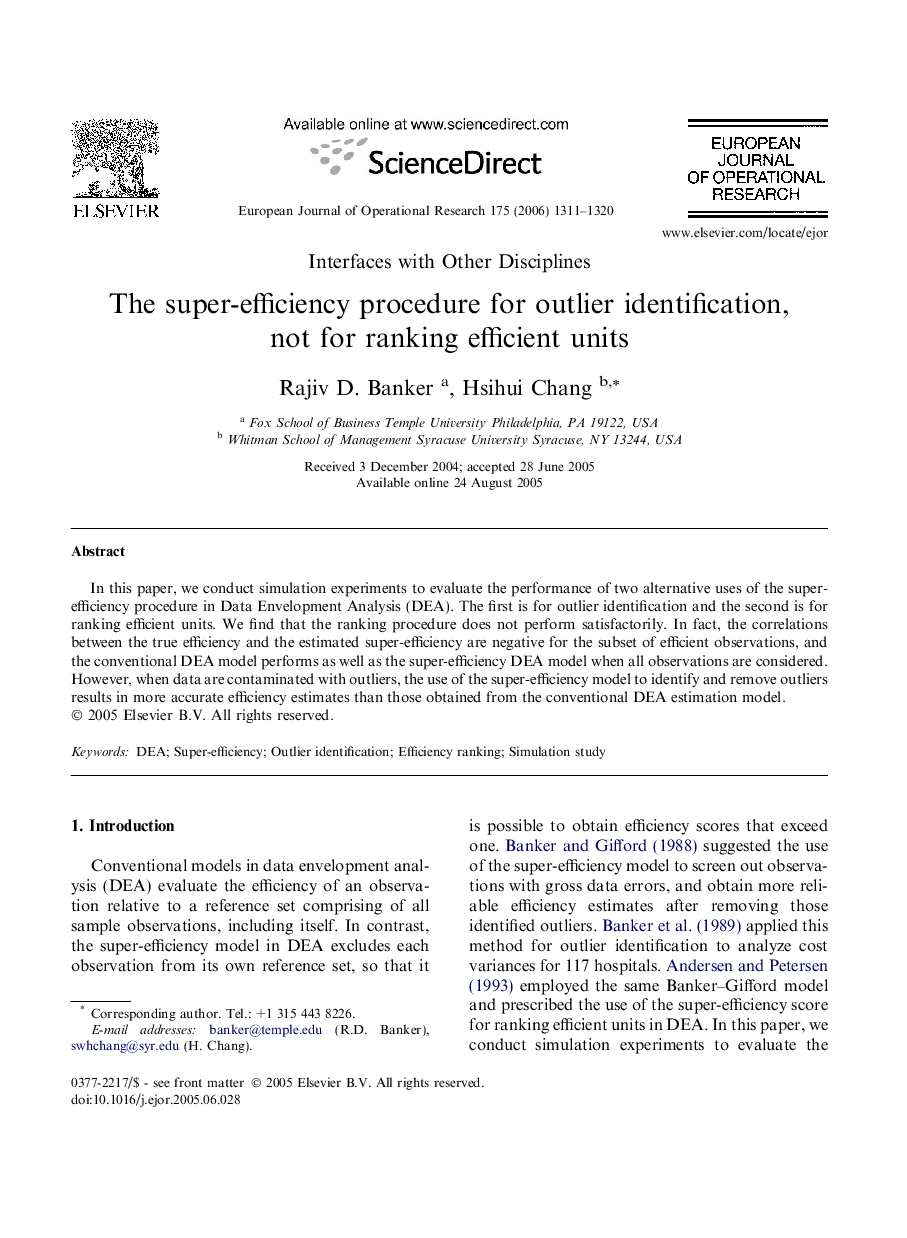| Article ID | Journal | Published Year | Pages | File Type |
|---|---|---|---|---|
| 482262 | European Journal of Operational Research | 2006 | 10 Pages |
In this paper, we conduct simulation experiments to evaluate the performance of two alternative uses of the super-efficiency procedure in Data Envelopment Analysis (DEA). The first is for outlier identification and the second is for ranking efficient units. We find that the ranking procedure does not perform satisfactorily. In fact, the correlations between the true efficiency and the estimated super-efficiency are negative for the subset of efficient observations, and the conventional DEA model performs as well as the super-efficiency DEA model when all observations are considered. However, when data are contaminated with outliers, the use of the super-efficiency model to identify and remove outliers results in more accurate efficiency estimates than those obtained from the conventional DEA estimation model.
